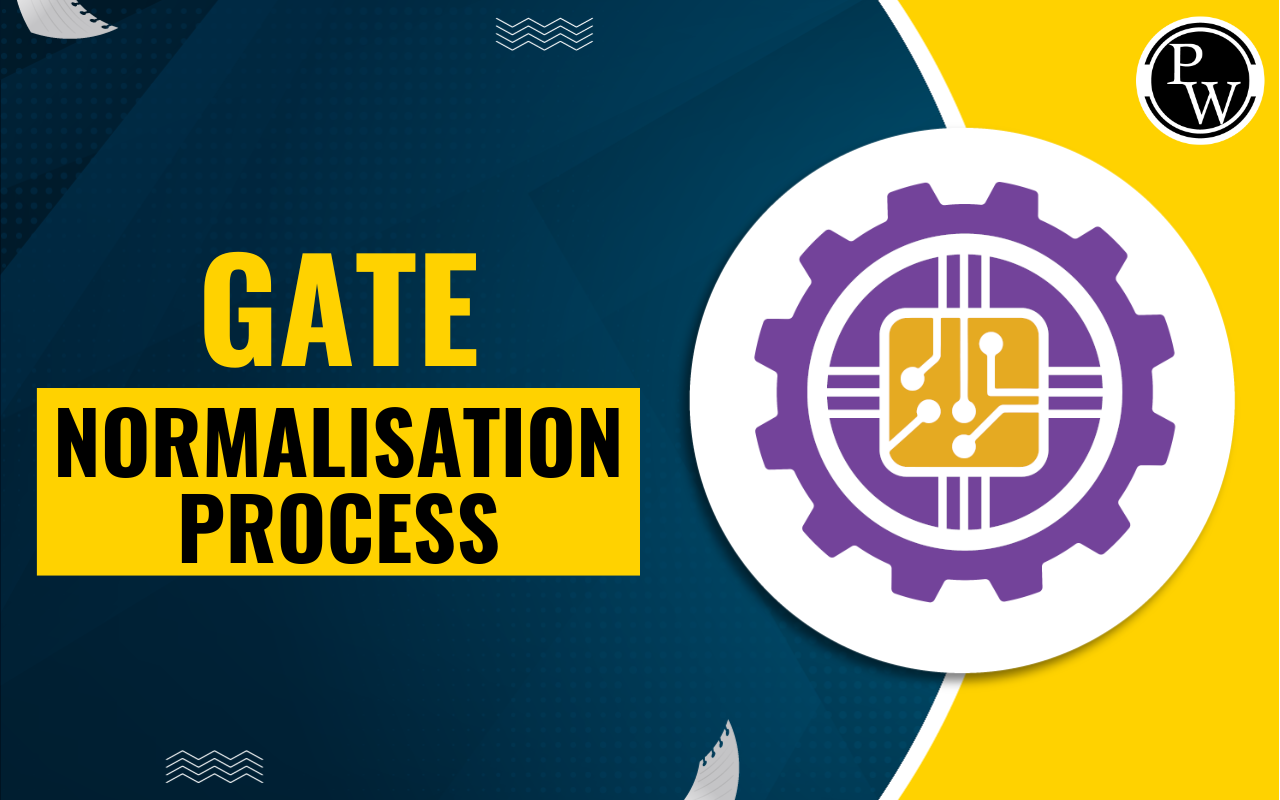
M.Tech vs. MBA: One of the common dilemmas that most engineering graduates confront after finishing their undergrad degree is deciding whether to pursue an M.Tech or an MBA degree. This lack of clarity can be resolved with an in-depth understanding of both courses. While both degrees provide excellent career possibilities and a decent salary, they differ in numerous aspects.
The preference for M.Tech vs. MBA among engineering graduates is deeply rooted in the professional landscape. Whether you work in information technology or manufacturing, these two degrees are the core pillars of corporate accomplishment. This article aims to provide a better understanding of MBA vs. M.Tech courses, so keep reading.M.Tech vs. MBA- What Should You Pursue?
The choice between "M.Tech vs. MBA" should be determined by your own interests as well as the alignment of your career aspirations. However, in order to make an informed decision, you must first grasp what both of these courses include and the long-term benefits they provide. Considering the duration of both programs, i.e., M.Tech vs. MBA, you'll find that both MBA and MTech are two-year-long master's degree courses. However, they differ from each other in terms of syllabus, exam pattern, and more. Therefore, before committing to a decision on which course to pursue, it's crucial to carefully examine both options, taking into account their respective advantages and career prospects. Let's first take a look at M.Tech vs. MBA program details individually. Read: M.Tech Vs PSU, Govt Job After GATE, Salary, Scope In IndiaWhat is M.Tech? - An Overview
The full form of M.Tech is Master's of Technology, which engineering students who wish to study further in their technical domain pursue after completing their B.Tech degree. M.Tech. is a two year postgraduate course that opens numerous possibilities for students in the areas of research, engineering academics, development, and technology.- The M.Tech program provides in-depth knowledge and specialized education in a wide range of technical fields, including computer science, mechanical engineering, electrical engineering, civil engineering, and others.
- Furthermore, pursuing an M.Tech degree will help you improve your quantitative and qualitative analysis, research, and analytical skills, as well as broaden your knowledge and point of view.
What is an MBA? - An Overview
A Master of Business Administration, which is the full form of an MBA, is a postgraduate degree program focused on offering advanced education in various aspects of business and management. This curriculum seeks to provide students with a thorough understanding of both academic and practical areas of the business world, including finance, marketing, operations, leadership, and strategy.- MBA programs usually offer students the opportunity to concentrate on specific business fields and involve hands-on experiences such as case studies, internships, and collaborative tasks.
- MBA graduates are fully prepared for leadership positions in a variety of industries, and this degree is widely acknowledged as an essential qualification for career advancement and entrepreneurial pursuits.
M.Tech vs MBA- Understanding Career Scopes
The choice of whether to seek admission in an MBA or M.Tech program is an important one, and it mostly depends on how well one's academic plan fits with their professional goals. Both M.Tech and MBA programs offer unique and specialized knowledge and provide specific information that might lead to different job paths. Therefore, it's essential to consider one's professional goals in order to make a thoughtful selection. The career scope of M.Tech vs. MBA is discussed in this section to help students make a well-informed decision on their academic and career paths.M.Tech Career Scope
In India, M.Tech graduates can choose from a wide range of career options, which reflects the country's increasing need for skilled employees. For M.Tech graduates, there is a dynamic and attractive job market with a wide range of career options in fields including technology, engineering, research, and more. Let's take a look at the various job options that one can pursue after completing their M.Tech degree.- Computer Science Engineers and Software Engineers: They work on software development, coding, and system optimization, and they often develop innovative solutions for an array of industries.
- Mechanical Engineers and Mining Engineers: These professionals work in the manufacturing, construction, and mining industries to design, manage, and maintain complex equipment and systems.
- Engineers in Electronics and Communication: Their work focuses on cutting-edge technology, communication systems, and electronic gadgets, all of which contribute to developments in telecommunications and consumer electronics.
- Chemical Engineers: They are in charge of inventing and implementing chemical processes that ensure the safe and efficient manufacture of chemicals and related products.
- Assistant Engineers and Executive Engineers: Their tasks usually involve project management, quality control, supervisory responsibilities, and decision-making in engineering projects, and they play an essential part in ensuring that projects are finished effectively and on time.
MBA Career Scope
The MBA program is an appealing choice for career growth. Pursuing an MBA not only enhances one's knowledge and skills but also opens doors to lucrative career prospects. The starting salary for MBA graduates can vary depending on their chosen area of specialization, and MBA finance professionals are often among the highest earners. They typically command annual salaries that range from INR 15 to 20 lakhs. Some of the prominent job options that an MBA degree holder can pursue include:- Account Manager: Account managers are responsible for building and maintaining relationships with clients. They ensure that the needs of their clients are met, which results in promoting business growth through client satisfaction.
- Area Sales Managers: They manage the sales teams within a specific region, setting targets and strategies to achieve sales goals.
- Business Analyst (IT): In the IT industry, business analysts help to connect business requirements with technological solutions. They examine systems and business processes to find areas that might require improvement.
- Business Development Managers: They focus on expanding a company's market presence by identifying new business opportunities, partnerships, and strategic initiatives.
- Financial Analyst: Financial analysts offer advice for well-informed financial decision-making, analyze financial data, and evaluate opportunities for investment.
- Human Resource Generalist: HR oversees a variety of tasks related to human resources, including hiring, managing employee relations, conducting performance reviews, and putting HR policies into practice.
- Human Resources Managers: They make sure that an organization's staff is productive and in line with its objectives and oversee HR activities, including policy creation, talent management, and strategic planning.
- Management Consultants: To assist businesses in improving performance and accomplishing their objectives, management consultants provide their knowledge in organizational development, corporate strategy, and problem-solving.
- Operations Managers: They are in charge of monitoring daily company activities, guaranteeing productivity, and putting plans into place to simplify processes.
- Regional Sales Managers: Responsible for overseeing sales teams in a particular region, regional sales managers create goals, offer direction, and track their progress.
- Senior Sales Executives: They typically manage larger accounts or complex sales transactions, with a focus on developing and maintaining important relationships with clients.
M.Tech vs MBA Specializations
It's important to remember that while both M.Tech and MBA programs offer an array of specializations within their respective fields, M.Tech programs often emphasize in-depth knowledge and expertise in fields like computer science, mechanical engineering, civil engineering, and electronics, to mention a few. On the other hand, MBA programs offer a broader scope of study that includes management and business disciplines. Students who complete these programs will have a thorough understanding of business theory and practice, covering topics such as strategy, leadership, finance, marketing, and operations. Let’s see some of the popular M.Tech vs MBA specializations.MBA Specializations
Some of the most popular and highly pursued MBA programs, which include a wide array of specializations, are outlined below. These programs are tailored to provide in-depth knowledge and practical skills in various fields of business and management. The sought-after MBA specifications among students include:- MBA in Finance
- MBA in Marketing
- MBA in Human Resource Management
- MBA in International Business
- MBA in Banking & Financial Services
- MBA in Business Analytics
- MBA in Rural Management
- MBA in Healthcare Management
- MBA in Entrepreneurship and Family Business Management
- MBA in Agribusiness Management
- MBA in Retail Management
- MBA in Logistics & Supply Chain Management
M.Tech Specializations
M.Tech programs offer an array of specializations, each designed to provide students with in-depth expertise in numerous technical and engineering disciplines. Some of the highly sought-after M.Tech specializations include:- Software Engineering
- Electrical Engineering
- Biomedical Engineering
- Mechanical Engineering
- Environmental Engineering
- Structural Engineering
- Metallurgy Engineering
- Mining Engineering
- Instrumentation and Control Engineering
- Biomedical Engineering
- Chemical Engineering
- Automobile Engineering
- Computer Engineering
- Marine Engineering
- Petroleum Engineering
- Civil Engineering
- Aerospace Engineering
- Electronics and Communication Engineering
M.Tech vs MBA- Benefits of Pursuing Degree After Graduation
Both M.Tech and MBA degrees represent advanced, postgraduate qualifications, each offering a distinct set of skills and expertise. M.Tech programs are designed to provide in-depth technical knowledge in fields such as engineering, computer science, and technology. On the other hand, MBA programs concentrate on the realm of business and management. Let's delve into the benefits you can get from pursuing M.Tech vs MBA degrees after completing your undergraduate studies.Benefits of Pursuing M.Tech After B.Tech
M.Tech allows you to specialize in a particular engineering subject, such as civil, mechanical, electrical, or computer science. This specialization expands your knowledge in your chosen field.- M.Tech equips you with a deeper understanding of complicated technological ideas by going deep into your preferred sector, making you highly skilled.
- Many M.Tech programs include research projects, which encourage innovation and sharpen critical thinking skills. These projects often end in ground-breaking solutions and contribute to technological progress.
- M.Tech graduates tend to be preferred applicants for lucrative careers in engineering and technology, as many job opportunities require an M.Tech degree.
- M.Tech graduates often have a higher earning potential than their B.Tech colleagues. Their specific expertise and skill set are in high demand in the job market, resulting in competitive pay.
- With an M.Tech degree, one can enter the world of academics. Many M.Tech graduates find satisfying teaching jobs in universities and colleges, where they can pass on their knowledge and expertise to the next generation of engineers.
Benefits of Pursuing MBA After Graduation
Having an MBA degree can help you grow in your career. It grants access to higher-level jobs and greater opportunities for career growth. Many senior and executive positions frequently require or prefer MBA qualifications.- MBA programs allow students to tailor their education by selecting a specific subject of focus, such as finance, marketing, entrepreneurship, or another area of interest. This specialization expands your knowledge of your chosen field.
- One of the most important aspects of earning an MBA degree is the various networking possibilities it offers. Interactions with other students, instructors, and alumni build a strong professional network that can help you in your future job endeavors.
- Throughout the MBA, students gain vital skills such as leadership, effective communication, problem-solving, and strategic thinking. These skills are in high demand in the business sector.
- Many MBA programs provide foreign exposure and a global business perspective. This exposure prepares you for handling the complexity of the global business world, promoting a more in-depth awareness of foreign markets and dynamics.
- If one aspires to be an entrepreneur or start their own business, an MBA can provide the knowledge, skills, and insights one needs. It covers significant subjects like company planning, management, and strategy.
M.Tech Vs MBA- A Detailed Comparison
Both M.Tech. and MBA degrees can lead to rewarding careers with high earning potential, depending on the student's career choices and market demand for their chosen specialization. Let's take a final look at the detailed comparison of M.Tech vs. MBA to gain a more precise understanding of both academic paths.|
M.Tech vs MBA Comparison |
||
| Particulars | MBA | M. Tech |
| Duration of Course | 2 Years | 2 Years |
| Type of Degree | Master’s Degree | Master’s Degree |
| Salary Expectations | INR 22,00,000 per Annum (Approximately) | Ranging From INR 8,00,000 to INR 11,00,000 per Annum (Approximately) |
| Area of Study | Business and Management | Technical |
| Major Specializations |
|
|
| Career Scope |
|
|
| Also, check | |
| GATE vs CAT | GATE vs NET |
| GATE vs SSC CGL | GATE vs SSC JE |
| M.Tech vs MBA | GATE vs ESE |
M.Tech vs MBA FAQs
M.Tech vs MBA: What should I pursue after graduation?
The choice of whether to pursue a M.Tech or an MBA depends on your career goals. However, to understand the M.Tech vs MBA comparison, refer to the article above.
Is M.Tech better than an MBA?
M.Tech and MBA are both the best programs that offer master's degrees and high-paying job opportunities.
Who earns more, an MBA graduate or an M.Tech graduate?
An MBA graduate from a reputable college usually earns more than an M.Tech degree holder. However, M.Tech graduates from esteemed institutions like IITs also enjoy higher salary prospects.
Is an MBA tougher than a M.Tech?
The toughness of both degrees depends on the students' knowledge of the subjects. While an MBA focuses on business management and leadership, a M.Tech emphasizes technical and engineering expertise.
Talk to a counsellorHave doubts? Our support team will be happy to assist you!

Check out these Related Articles
Free Learning Resources
PW Books
Notes (Class 10-12)
PW Study Materials
Notes (Class 6-9)
Ncert Solutions
Govt Exams
Class 6th to 12th Online Courses
Govt Job Exams Courses
UPSC Coaching
Defence Exam Coaching
Gate Exam Coaching
Other Exams
Know about Physics Wallah
Physics Wallah is an Indian edtech platform that provides accessible & comprehensive learning experiences to students from Class 6th to postgraduate level. We also provide extensive NCERT solutions, sample paper, NEET, JEE Mains, BITSAT previous year papers & more such resources to students. Physics Wallah also caters to over 3.5 million registered students and over 78 lakh+ Youtube subscribers with 4.8 rating on its app.
We Stand Out because
We provide students with intensive courses with India’s qualified & experienced faculties & mentors. PW strives to make the learning experience comprehensive and accessible for students of all sections of society. We believe in empowering every single student who couldn't dream of a good career in engineering and medical field earlier.
Our Key Focus Areas
Physics Wallah's main focus is to make the learning experience as economical as possible for all students. With our affordable courses like Lakshya, Udaan and Arjuna and many others, we have been able to provide a platform for lakhs of aspirants. From providing Chemistry, Maths, Physics formula to giving e-books of eminent authors like RD Sharma, RS Aggarwal and Lakhmir Singh, PW focuses on every single student's need for preparation.
What Makes Us Different
Physics Wallah strives to develop a comprehensive pedagogical structure for students, where they get a state-of-the-art learning experience with study material and resources. Apart from catering students preparing for JEE Mains and NEET, PW also provides study material for each state board like Uttar Pradesh, Bihar, and others
Copyright © 2026 Physicswallah Limited All rights reserved.









